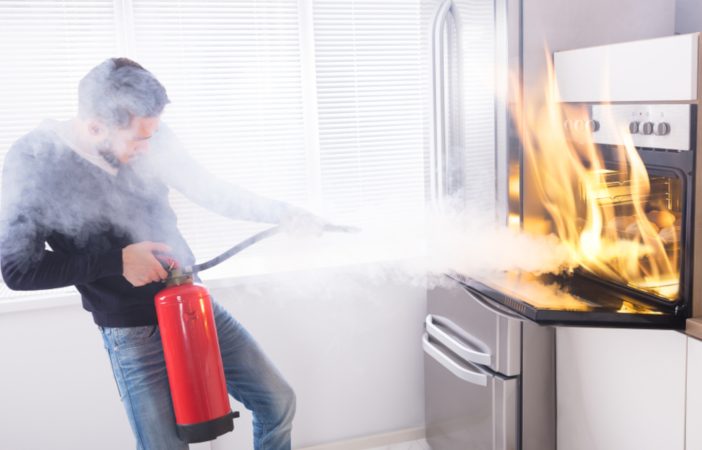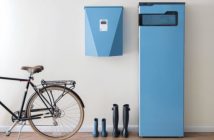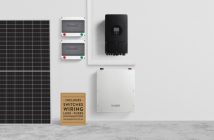Winter has arrived — a time of the year when people move indoors, light fires, turn on heaters and electric blankets, switch on ovens to prepare slow-roasted casseroles and soups, and hunker down in their homes for the colder months. Our electricity grid also takes more strain in winter, and it is a time when South Africans experience increased load-shedding — turning to candles and gas-powered lanterns to light the way.
But, with these heating, lighting, and cooking sources comes an increased fire risk, and so it is especially important to keep fire safety in mind during winter. To help keep your home and family safe this winter, we’ve put together a list of a few crucial ways to make sure your home is secured against this type of risk. Here’s how to fireproof your home this winter:
Heating
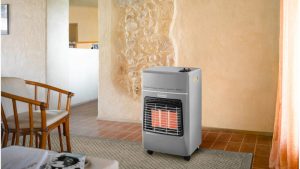
Keeping your home warm in the winter months is non-negotiable. Fireplaces, heaters — both gas and electric — and electric blankets are all ways we stay warm. But these are also all high-risk activities that can cause a house fire. To stay safe, make sure that you:
- Keep children far away from any heaters and don’t allow them to play with the fire.
- Don’t use your oven to heat your home.
- Have all heating equipment and chimneys regularly inspected and maintained by professionals.
- Keep all flammable items away from all heaters, fireplaces, stoves, or anything that is meant to heat your home.
- Make sure you have a fire screen in place whenever there is a fire burning, and do not leave fires or heaters unattended when you are not in the room.
- Modern electric blankets are much safer than their predecessors, however, it is important to make sure it fits tightly onto the mattress and switch the blanket off before going to sleep.
Cooking
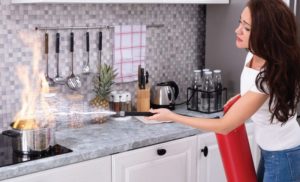
Also read: Buyer’s Guide: 3 Best First-Aid Kits
Everyone loves a home-cooked meal in the winter months. It has been reported that the leading reason fires start in the kitchen is unattended cooking, and most fires involve the stovetop. To stay safe when you are cooking:
- Keep flammable items, like kitchen towels, food packaging, and wooden utensils away from flames and hot stovetops.
- Stay in the kitchen when you are using the stovetop and make sure that you are at home when you are using the oven.
- Keep young children away from the oven, particularly when cooking on the stove top.
- Have a fire extinguisher easily accessible in the kitchen area.
Candles
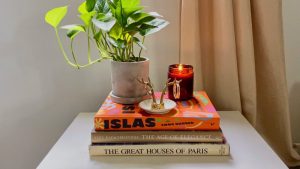
If you use candles during load-shedding then be aware that they can be dangerous. Candles are basically just a mini open flame in the middle of your house. If you light one, keep these fire safety tips in mind:
- Keep candles away from anything that could catch on fire.
- Never leave a candle burning when you go to bed or leave the house.
- Don’t leave children unattended with candles (or matches, or lighters).
- Make sure the candle has a sturdy base or candleholder so that it cannot fall over.
Electrical
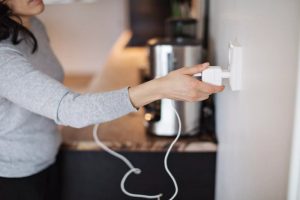
Electricity has made our lives convenient in so many ways that it is easy to forget it can actually be hazardous if something goes wrong – such as faulty wiring. Stay out of harm’s way by following these suggestions for home electrical safety:
- Plug in just one heat-producing appliance in an outlet at a time. This includes items like coffee makers, toasters, hairdryers, curling irons, and room heaters.
- Never run electrical cords under carpets or doorways. And never use old, damaged leads
- Use light bulbs that match the recommended wattage for the item you are using.
- Have a licensed electrician do an inspection every other year or so. Even people who do not know much about wiring can examine their sockets and plugs for common signs of damage.
Additional fire hazards to watch out for
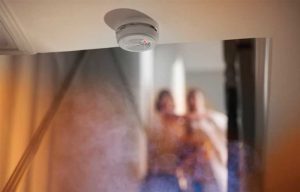
The above list includes the most obvious fire hazards to watch out for, but is not always our obvious actions or sources that cause a fire. Here is a list of hazards in the home that many people might not consider:
Dust
Seemingly innocent dust bunnies are fire hazards when they are close to light or heat sources. Make sure you keep your home clean to avoid dust build-ups.
Laptop computers
It is important to always keep your laptop on a desk or table while it is on, and never on a couch or bed. If the vents meant to keep it cool are blocked, it can overheat and lead to a fire.
Toaster crumbs
Be sure to clean out the inside of your toaster regularly. Hard, toasted breadcrumbs lying in the bottom of the toaster are extremely flammable and can set off a fire.

Paper
Try to avoid stacks of paper in your home. Items like newspapers can catch fire if they are too close to a heat source.
Tumble dryer lint
Lint in your tumble dryer is a high risk for fires. Make a habit of cleaning out the lint trap of your tumble dryer every time you use it.
Heated hair styling devices
Left on too close to bathroom towels or clothing, while hot, these devices can start a fire that quickly moves to the rest of the house.
Vases
An unusual risk that many people don’t consider is a glass vase in a sunny window. It may look pretty, but it is a magnifying device. If the sun reflects off the glass and onto a curtain or couch, it could start a fire.
Fireproof your home
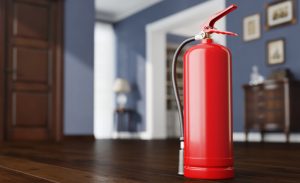
Luckily there are several things that you can do to add an extra layer of precaution against fires:
The first thing is to purchase a fire extinguisher — which is one of the most effective ways to fireproof your home. A fire extinguisher can quickly put out a fire before it rapidly spreads throughout your house. Keeping a fire extinguisher in an easy-to-reach place is important. Also ensure that you have your fire extinguishers serviced regularly so that they are in optimal working condition.
Find the best prices on fire extinguishers online with PriceCheck now:
Installing smoke detectors throughout your home is another highly recommended way of avoiding a run-away house fire.”When buying smoke alarms, check that the product is certified, or SABS approved. The best place to install smoke alarms is on the ceiling in all the rooms in a home. Make sure that you regularly clean smoke alarms and changing the batteries twice a year is essential. It is also a good idea to test your smoke detectors.
Practical fire-safety practises will go a long way to protecting your home and your family this winter. Before leaving the house, make sure you have turned off any heating appliances and that you have made sure the open flames and the fireplace flame is completely out. Turn off the stove and the oven as well. Make sure you have a fireplace screen. When turning off gas appliances, make sure to close the valve on the gas bottle as well.
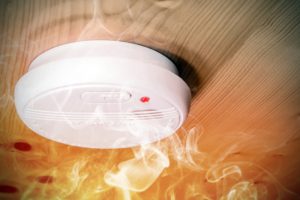
Keeping your home fire-safe in the winter, and all year long is all about being aware of behaviours and activities that could be hazardous. Stay alert when it comes to keeping yourself, your family, and your home safe from common fire dangers — and call for professional help when it’s needed.
Find the best prices on smoke detectors and smoke alarms online with PriceCheck now:

